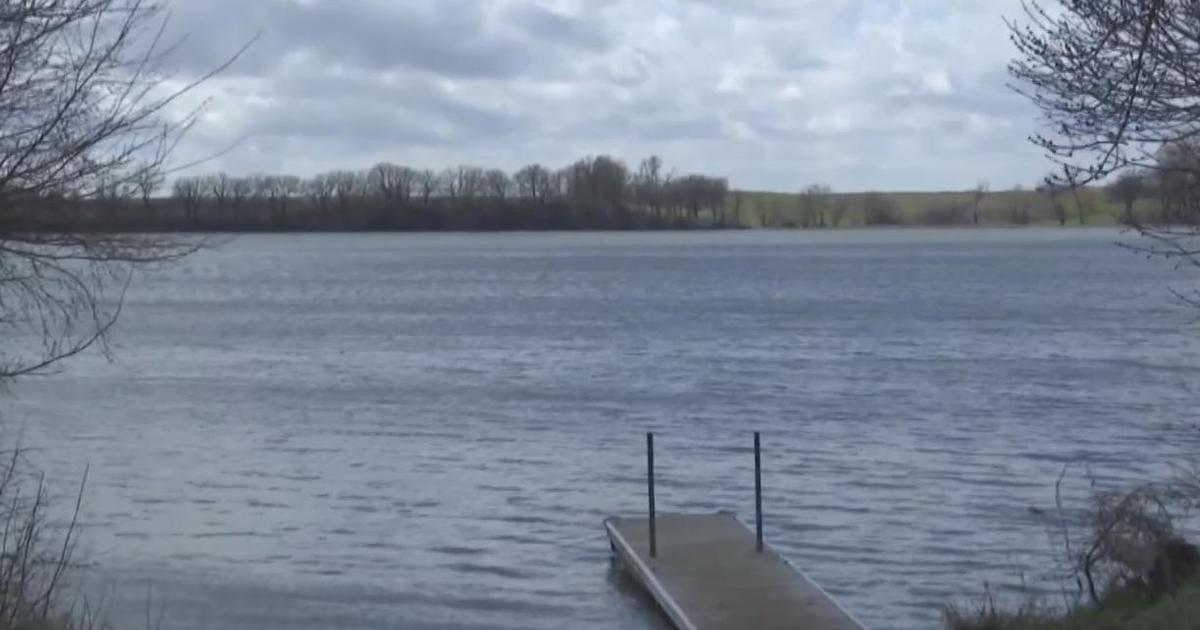Walleyes, Deer, Wolves And Moose Among Topics Of DNR Event
BROOKLYN PARK, Minn. (AP) — Gov. Mark Dayton's announcement that he'll ask lawmakers to require a 50-foot buffer zone along most streams, lakes and wetlands to boost the state's struggling pheasant population was the highlight of the annual Department of Natural Resources roundtable. But the discussions Friday also included ones about fishing, deer hunting, wolves and moose.
MILLE LACS WALLEYES
A blue-ribbon panel of outside experts — commissioned by the DNR to review the agency's own research and data on the reasons for the decline in the walleye population of Mille Lacs Lake — reached similar conclusions. The main problem is that the big lake's young walleyes aren't surviving until their second and third autumns and that the reasons are complex.
Paul Venturelli, a fisheries researcher at the University of Minnesota, said they concluded that recreational and tribal subsistence fishing probably isn't the main reason, but it is something that the state can control, unlike some of the other changes taking place within the popular lake. Their report concluded it would be prudent to reduce the walleye harvest, perhaps permanently. They also said it may be worth tighter controls on the lake's northern pike, smallmouth bass and cormorant populations to benefit walleyes.
But they said walleye stocking won't help because the lake's natural walleye reproduction is strong and that stocked walleyes would simply suffer the same fates that are impairing the survival of the lake's other young walleyes.
DEER
Minnesota is coming off a deer season marked by very conservative regulations that were meant to rebuild the state's deer herd. The total harvest was 139,500 in 2014, down 19 percent from 2013, mainly due to a 31 percent reduction in the numbers of antlerless deer killed by hunters, said Paul Telander, the DNR's wildlife chief.
Starting next month the DNR will hold a series of public meetings around the state as part of a larger process for setting the agency's deer population management goals, said Leslie McInenly, the DNR's big game program leader.
The meeting also heard a presentation that touched on the contentious issue of whether to allow emergency deer feeding during harsh winters. John Fischer, director of the Southeastern Cooperative Wildlife Disease Study at the University of Georgia, said feeding deer spreads diseases among deer, such as bovine tuberculosis, that can affect livestock. He said Minnesota's last outbreak cost $102 million between governmental efforts to bring it under control and the impact on the state's economy.
WOLVES
Telander said the DNR is still waiting to see whether the U.S. Fish and Wildlife Service will appeal a federal judge's ruling last month that put gray wolves in Minnesota, Wisconsin and Michigan back on the endangered list. He said the state still has a "very healthy" wolf population. Hunters and trappers killed 272 wolves in 2014 in what could be the state's last wolf season for some time. Telander noted that some in Congress are planning legislation that would remove the region's wolves from the endangered list, undoing the court's decision. Congress did so for Montana and Idaho earlier. Dayton told reporters he wasn't optimistic about Congress acting, but that he could support it.
MOOSE
Telander said there's still "no smoking gun" to explain or reverse the precipitous decline in Minnesota's moose population. In reviewing ongoing studies about what's ailing them, he said confirmed and suspected predation by wolves accounted for 55 percent of the 33 deaths among adult moose in the study. DNR wildlife research manager Lou Cornicelli said the loss of moose calves in the study was over 70 percent. But they and other experts say it's too early to conclude that wolves are to blame. Diseases, parasites, habitat loss and climate change are also suspected factors.
(© Copyright 2015 The Associated Press. All Rights Reserved. This material may not be published, broadcast, rewritten or redistributed.)



